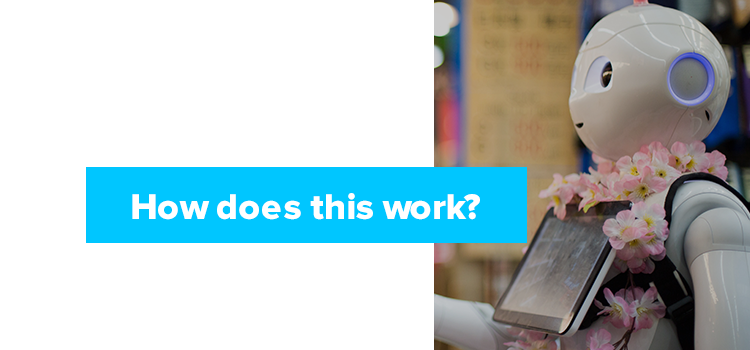The best way for an e-commerce venture to succeed is by providing relevant products and content to the audience. Making the shopping experience as personal and tailored as possible for each individual consumer. Product recommendation has become the driving force for any e-commerce business.
The influx of new technologies has completely transformed the traditional shopping experience. The latest of these game-changing technologies is Artificial Intelligence, the flavor of the year.
The technology has been rightly praised by everyone from store owners to customers. In the context of integrating AI with e-commerce, the applications range from the ability to analyze data sets, identifying patterns and creating personalized experience way more efficiently than any human being. AI is gradually penetrating the everyday business processes of e-commerce stores with a high prediction for an increase in conversion rates.
Is it worth it?
Despite all the hype, a paradox arises. Is AI even worth venturing into, and does it really have to be implemented at your e-commerce store right now?
Well, let’s start by saying that the combination of AI and e-commerce presents endless possibilities. And that is also backed by statistics. According to specialists, AI has the potential to boost profitability rates by an average of 38% by 2035.
AI will particularly benefit the retail sector because of its immediate impact on two fundamental areas that have a serious impact in retail e-commerce: creating a very personalized shopping experience and making smart business decisions.
More than just the name of your customer
No matter how good your marketing tactics and outreach are, there is always room for improvement. The more you get personal with your customer, the better. And with vast data you collect in the bargain, you can get off on the right foot.
AI not only showcases highly personalized products better, it also assesses customer behavior and provides sophisticated predictions about what a customer really wants. This is actively used to better the predictions for future purchases and design customized sales strategy based on customer behavior trends.
How does this work?
AI engines sit on top of your website and start monitoring all user activities. It analyzes all the key signals a that may emanate from a customer’s journey, like products bought, products browsed, pages visited, time spent on the website, etc.
Using these data-points AI targets users on an individual level. It dynamically starts suggesting products on-site. Your work here is to just designate target pages where such recommendation would take place.
Here is a brief of how AI recommendation engine will help your brand:
– boost cross-selling of products;
– recommendation of new products that a user might find useful but has failed to discover;
– increased customer loyalty;
– 1:1 Brand to User personalization model.
In conclusion, using a recommendation engine will help you understand your customer’s journey better by seeing how they behave on your website, the time when they are most likely to make a sale, etc.
And hence, a recommendation engine would use this data to its advantage and target users with precise products that are likely to be bought by the user.


